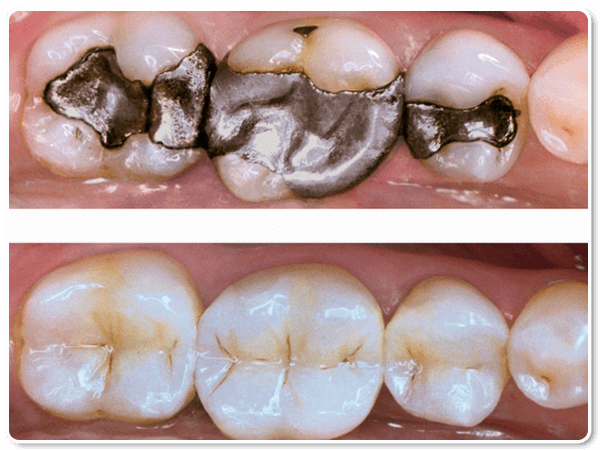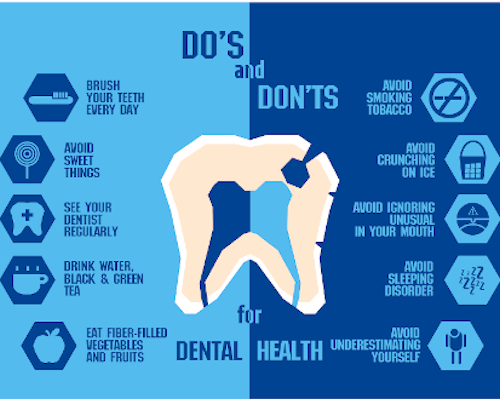(508)-720-5000
Online
(508) 720-5000
Online
General & Family Dentistry In Natick
Cavity Fillings

Thanks to technological advances, general dentists and patients today have several choices when it comes to selecting materials to fill cavities. Among the choices are natural tooth-colored materials such as resin-based composite fillings and more traditional dental fillings such as those made of metal amalgam. The advent of new materials for fillings has been beneficial, especially in terms of aesthetics, but does not eliminate the appropriateness of traditional dental materials that are stronger, more durable and less expensive. Our family dentist believe that these materials are best in situations where restored teeth must withstand extreme forces that result from chewing, such as in the back of the mouth.
When it comes to removing minor decay and restoring the appearance of teeth, dental fillings are the basic procedure for achieving a beautiful and cost-effective result. While most dental specialists formerly relied on silver (amalgam) teeth fillings for cavities, that is no longer the case. Although silver fillings have proven to be an effective solution for treating tooth decay, they have become less popular over the years and have been replaced by aesthetically pleasing white composite fillings. As a family dentist practice, we provide a variety of cavity filling options for patients seeking dental care.
There is a wide variety of materials used for filling cavities and they vary in strength, color, and cost. According to our family dentist, there are two most common types are amalgam and composite. 1) Amalgam Fillings: Amalgam has been used by dental professionals for more than a century; Amalgam fillings are strong and are therefore ideal for filling cavities in the back of the mouth such as in the molars, where chewing takes place. Since they are made of a combination of several metallic elements, amalgam fillings can be noticeable when you laugh or smile. These fillings are among the least expensive of all cavity-filling materials. 2) Composite Fillings: Sometimes referred to as composites or filled resins, these fillings feature a combination of glass or quartz filler and can be made to match the color of your tooth. Composite fillings are also fairly durable and are ideal for small-to-mid-size restorations in areas of your mouth that perform moderate chewing.
Dental Crowns

Dental crowns are custom made by our general dentist to comfortably and effectively fit your smile. Crowns can be made from a number of materials, including porcelain; porcelain crowns are often chosen for their natural-looking appearance.
A dental crown is a restoration that can be used for a number of restorative and cosmetic purposes. The crown covers the entire tooth, starting at the gum line. This restores the tooth to optimal structure, strength, and shape. A crown may be recommended to: 1) Improve the function and appearance of a misshapen tooth, 2) Attach a dental bridge, 3) Strengthen a weakened or cracked tooth, 4) Protect a tooth after root canal therapy (endodontics), 5) Enhance the aesthetics of a seriously darkened or stained tooth, 6) Support a large dental filling if little natural tooth structure is left, and 7) Repair a severely decayed or otherwise damaged tooth. As a general dentist, we provide a full range of option for dental crowns.
Dental Bridges
Adult teeth may be lost for a variety of reasons, such as advanced periodontal disease, trauma, or decay. According to our family dentist, if missing teeth are not replaced, your other teeth can drift out of position. These areas are more likely to develop gum disease and induce the decay of surrounding teeth.
A bridge is a restorative structure that is used to replace missing teeth. Bridges consist of one or more false teeth that are held in place by crowns that are attached to the surrounding teeth. Bridges can be made with a gold alloy substructure or can be made metal free (all ceramic). Bridges fall under two main categories, "fixed" and "removable." Fixed bridges are cemented in place and cannot be taken out. Removable bridges are not permanently attached and can be removed at night or for cleaning purposes. Bridges can dramatically improve the appearance of your smile by replacing missing teeth. The materials used to create the bridge are made to match the color of your natural teeth, while providing strong structural support.
The teeth next to the empty space will be reduced in order to receive the crown portion of the bridge. Then, an impression will be taken of the whole area (the missing area and the two teeth next to it). This impression is then sent to a lab, and a bridge is custom-designed to fit the area. Just as with the placement of a crown, a temporary bridge will be put in place to protect your teeth and gum while the restoration is being constructed. We may provide you with a "flipper" in place of a temporary bridge. A flipper is a temporary false tooth that latches onto a metal wire on the adjacent teeth.
If you have missing teeth, a high quality dental bridge in the Natick may be your solution. Call you family dentist today for your personal dental bridge consultation.

Complete And Partial Dentures

Dentures are removable, artificial teeth that restore your ability to eat properly, as well as support your facial structure and improve your speech. Sometimes patients lose all or most of their teeth due to decay, gum disease or accident. In these cases, our family dentist can fit you with complete or partial dentures to give you a beautiful smile again.
Temporary—complete or partial—dentures typically made from acrylic are useful for patients who have either lost or will lose teeth to gum disease or other problems. These keep patients from going toothless during the healing process or while more-permanent dentures are being made. Our general dentist provides up to six months of follow-up care for temporary dentures, which includes all necessary adjustments for proper fit and comfort.
Partials made with a cast metal framework for strength are best for patients who are missing several teeth, but whose remaining teeth are healthy and solid in the bone. Flexible partials made from a flexible nylon-type material are permanent partials that are considered more cosmetic because no metal is used and more comfortable because of increased flexibility.
Complete dentures are for people who are missing all natural teeth. Our family dentist offers the more affordable standard dentures, as well as the premium dentures that provide the highest quality in appearance and comfort. A second feature of premium dentures is the inclusion of a back-up denture which is incorporated in the fee.
Dental hygiene and cleaning

The secret to beautiful, healthy teeth lies in consistent dental hygiene, regular brushing, and a routine dental exam. If you cannot remember the last time you had an annual checkup, you are likely way past due. Preventive dental services are important, which is why our family dentist encourages its' patients to undergo routine dental maintenance treatments including exams, digital x-rays, and deep cleanings by one of our top trained hygienist. Post a deep cleaning, our general dentist will evaluate any dental treatment that maybe needed.
If you want to keep those pearly whites looking their best, professional teeth cleanings are essential in maintaining healthy, plaque-free teeth. Many people believe that having an annual checkup is enough to preserve a beautiful smile. In reality, professional teeth cleanings are required to remove hidden tartar, plaque and bacteria that is not visible to the naked eye. Our general dentist can help you keep and maintain a health smile.
Dental Sealants
Dental sealants are proven to reduce cavities by up to 70% in children and adolescents. Dental sealants are a clear or white resin material designed to flow into and seal the deep grooves in the chewing surface of children’s teeth. This helps to prevent invasion by bacteria into these hard-to-clean areas. Because the sealants are created from a clear or white resin, they blend in with your teeth and cannot be seen when you smile, speak or laugh. Our dentists most often recommend dental sealants in Natick, MA for the permanent back teeth (molars and premolars) because these teeth are common sites of decay. We usually suggest applying sealants on these teeth as soon as they grow in, which is typically between six and twelve years of age.
Sealants are inexpensive, painless and easily applied without anesthesia. The tooth is cleaned, dried and the sealant resin is applied to the chewing surface. The sealant is then allowed to dry. Dental sealants are most often recommended for children; our dentist frequently recommends sealants for the permanent molars as soon as they come in, which is usually between the ages of 6 and 12 years. We may also recommend dental sealants for adult patients whose teeth are prone to decay or for teeth that have not been restored or suffered from decay in the past.
We can apply dental sealants in just one short, comfortable visit to our practice. Sealants can be a powerful tool in preventing decay and keeping your smile healthy. To learn more about dental sealants and how we can keep your smile in good health, we welcome you to call or visit our general dentist at Natick Family Dental. To learn more about dental sealants and our other preventive treatments, we invite you to call or visit our office today. We are dedicated to helping you keep your smile free from decay.

Oral Cancer Screening

hWhile not widely discussed, more than 40,000 people are affected each year by oral cancer, and one person every hour will lose their lives to it. Like any cancer, early detection is key to treatment and survival. An oral cancer screening is a simple and painless procedure that can be performed by our dentists and may mean the difference between life or death. This is another good reason not to avoid your regular dental screenings, and if you have never had an oral screening for cancer, there is no better time than the present. Like any cancer, awareness is crucial and timing is everything. Below we have provided a guide to oral cancer screenings and the processes involved.
It is one of the few types of cancer that has not seen a significant reduction in incidence over the past thirty years, and recent research has shown a strong association with Human Papilloma Virus (HPV), which can be sexually transmitted. For this reason, many oral health care professionals now believe that all individuals over the age of 18 should have at least an annual comprehensive oral examination, and ideally at every dental hygiene visit.
Oral cancer is typically discovered in late stages, when the five-year survival rate is only 22%. If detected in early stages, however, the five-year survival rate is 80% or higher. According to our family dentist, an annual comprehensive oral cancer screening for all of our patients should be done. By detecting potential problems earlier, we will be providing our patients with the best health care currently available.
Fluoride Treatments
Patients with risk of caries, as identified by the dentist will benefit from in office topical fluoride therapy or fluoride varnish application on teeth during each hygiene visit. Fluoride treatment every six months, will help prevent caries in children and adolescents. Adults with high caries risk will also benefit from in-office fluoride treatment every six months
To help you and your family’s teeth fight cavities, our general dentist may recommend fluoride. Fluoride is a mineral that helps fight tooth decay by making your tooth enamel stronger and more resistant to cavities. Fluoride is found naturally in water and many foods. It is also found in toothpaste and many other dental products. Minerals are added to (remineralization) and lost from (demineralization) your tooth enamel all the time. It is important to add at least as much minerals as are being lost. If demineralization gets ahead of remineralization, tooth decay occurs. Fluoride will make your teeth more resistant to acid attacks that cause decay. It also fights early decay.
Our Natick dental office can apply fluoride to your teeth in a gel, foam, or varnish form. These forms have a much higher concentration of fluoride than toothpastes and mouth rinses do. If a varnish is used, our dentists will paint it on your teeth. The foam fluoride form is placed in a mouth guard and applied for several minutes. Gels are either painted on or applied with a mouth guard.

Digital X-rays

Dental x-rays are an integral part of a comprehensive treatment plan for our family dentist. In order to see the big picture, our general dentist require a dental radiograph, more commonly referred to as dental x-rays. These dental x-rays allow the dentist to get an in-depth look below the teeth and gums. For patients convenience, our general dentist preforms on-site dental x-rays. With a proper dental radiograph, our team of dental professionals are able to give patients informed evaluations.
Our digital x-rays check for any cracked or decayed teeth. We will also screen for signs of oral cancer and examine your gums for any evidence of periodontal disease. If you have any dental fillings, crowns, or other restorations, our general dentist will make sure they are still in good condition.
Additionally, we will take diagnostic X-rays to reveal any other hidden problems, especially in the areas below the gums. Bitewing X-rays are typically taken every 6 months and a panoramic X-ray is taken every 3 to 5 years. to find our more information, contact our Natick dental office to schedule an appointment with our general dentist.
Gingivitis Treatment
Gingivitis is the mildest form of periodontal disease. It causes the gums to become red, swollen and bleed easily. There is usually little or no discomfort at this stage. Gingivitis is often caused by inadequate oral hygiene. This process is reversible with professional gingivitis treatment and good oral home care.
Untreated gingivitis can advance to periodontitis. With time, plaque can spread and grow below the gum line. Toxins produced by the bacteria in plaque irritate the gums. The toxins stimulate a chronic inflammatory response in which the body in essence turns on itself and the tissues and bones that support the teeth are broken down and destroyed.
Without gingivitis treatment, gums can separate from the teeth, forming pockets (spaces between the tooth and gums) that become infected. As the disease progresses, the pockets deepen and more gum tissue and bone are destroyed. Often, this destructive process has very mild symptoms. Eventually, teeth can become loose and may have to be removed. Patients in Natick with this condition should call our general dentist for an appointment.

Tooth Decay

Second only to the common cold, tooth decay is one of the most prevalent disorders in the United States. Unfortunately, the effects of tooth decay can be significant and long-lasting. According to the National Institute of Dental and Craniofacial Research, an estimated 92% of adults between the ages of 20 and 64 have tooth decay in their permanent teeth. Even more shocking, 23% of adults aged 20 to 64 have tooth decay that goes untreated. With startling statistics such as these, it is obvious why tooth decay treatment is imperative.
Tooth Sensitivity
Teeth Sensitivity may be caused by various reasons like decay or cavities, fractured teeth, worn out filling, periodontal disease, chipping of tooth, or exposure of pulp to cavities or decay. One of the most common and easy way to treat sensitive teeth is to use desensitizing toothpaste. The desensitizing tooth paste contains compounds to foam a layer on your teeth to block transmission of heat or cold, or acidic or sticky substance to transmit to the root, from the tooth surface. When applied regularly desensitizing toothpaste helps to reduce sensitivity of teeth.
Your dentist may prescribe fluoride treatment to increase the enamel strength. Stronger enamel will reduce sensitive transmission from tooth surface to the root. Your dentist could also prescribe toothpaste with concentrated fluoride for every day brushing to help maintain and restore health of tooth enamel.
Sensitivity caused by decay is treated by fillings or other restorative process like crowns or inlays or bonding. Surgical gum grafting is another process to reduce sensitivity due to recession of gum which often exposes the cementum that protects the root. Some patients will need root canal treatment if root is exposed due to caries or crack on tooth.
In healthy teeth, a layer of enamel protects the crowns of your teeth—the part above the gum line. Under the gum line a layer called cementum protects the tooth root. Underneath both the enamel and the cementum is dentin. Dentin is less dense than enamel and cementum and contains microscopic tubules (small hollow tubes or canals). When dentin loses its protective covering of enamel or cementum these tubules allow heat and cold or acidic or sticky foods to reach the nerves and cells inside the tooth. Dentin may also be exposed when gums recede. The result can be hypersensitivity.

Pediatric Dentistry In Natick

Keeping your child’s smile cavity-free, healthy, and looking beautiful is best achieved by securing the professional dental care of a compassionate, friendly dentist and team. We provide comprehensive pediatric dental services, so your child has access to the comprehensive selection of treatments necessary to maintain optimal oral health.
Guiding your child toward a healthy smile includes the establishment of excellent habits. We recommend visiting us once every six months for pediatric preventive visits. By remaining committed to scheduling consistent checkups, you allow us to thoroughly remove plaque from your child’s teeth, while monitoring his or her health for early detection and treatment of concerns the moment they arise. Dental sealants and fluoride treatments offer additional preventive protection against tooth decay for a truly healthy, comfortable smile.
While your daily brushing and flossing habits at home in combination with pediatric dental care typically yield excellent results, teeth are still vulnerable to damage. Whether your child’s teeth suffer from cavity development, physical injury, or other concerns, we will repair the structure of your child’s tooth while returning your child to excellent oral health with restorative care, including: Dental fillings, dental crowns, extractions, wisdom tooth removal, preparation for orthodontic treatment, and/or emergency dentistry for kids.
Custom Sports Mouthguards
Sports mouthguards, also called sportsguards, are a crucial component of sports safety gear. Regrettably, many athletes tend to neglect or underuse sportsguards, despite the significant number of tooth injuries that occur during sports activities each year.
At Natick Family Dental, we prioritize preventive dental care and offer personalized sportsguards for athletes of all ages in the surrounding areas. While some patients or their parents may believe that mouthguards are only necessary for contact sports like hockey and football, we strongly recommend sportsguards for a wide range of sports, including non-contact or "solo" sports.
